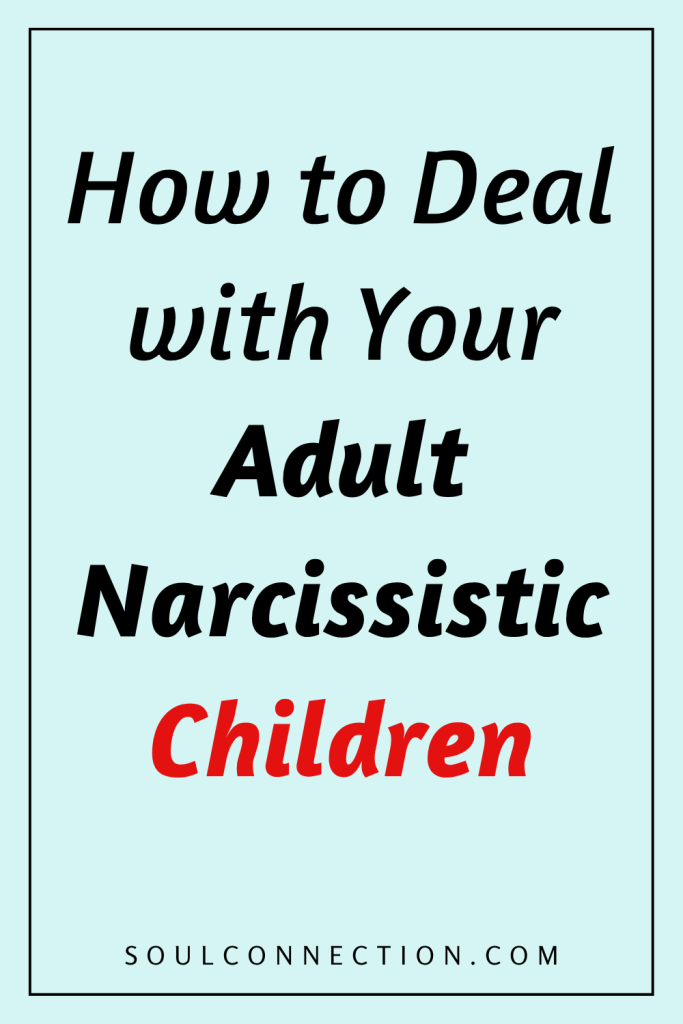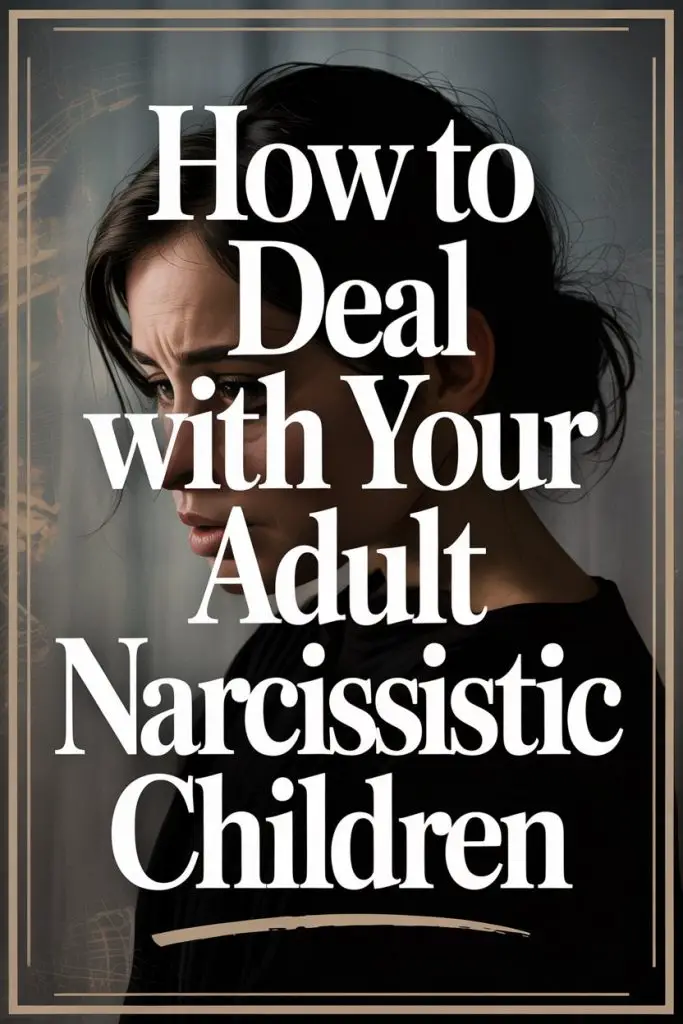Nobody ever plans on raising a narcissist. You start off with lullabies and bedtime stories, blink twice, and suddenly your grown kid is reciting their resume at Christmas dinner and treating your boundaries like mere suggestions.
If you’re reading this, odds are you’ve realized your adult child’s ego could use its own postcode—and you’re not sure how to keep your sanity (or your credit card) intact.
Welcome to the club. Membership includes lifelong patience and a Master’s degree in biting your tongue.
But take heart: while you can’t rewrite their personality, you can absolutely change how you interact with them.
Spotting the Signs (Because Gaslighting Isn’t a Family Tradition)
Narcissism isn’t just a teen phase that didn’t get the memo to leave. It’s a persistent pattern: think self-absorption, lack of empathy, and a penchant for rewriting family history so they’re always the misunderstood hero.
If you’re constantly walking on eggshells, feeling manipulated, or noticing that your “child” is more interested in winning than connecting, you’re likely dealing with more than just a garden-variety difficult personality.
Trust your gut. If conversations feel like competitions and boundaries are treated as speed bumps, your intuition is probably spot on.
Boundaries: Not Just a Buzzword Therapists Love
Parents of narcissistic adults quickly learn that saying “no” is taken as an act of war. Stand your ground anyway.
Boundaries aren’t cruel. They’re essential—like seatbelts, but for your mental health. Stick to them.
If your child tries to guilt-trip you (see also: Oscar-worthy monologues about how you’re the “only parent who doesn’t…”), keep your response boring and consistent. “I’m not able to do that.” Rinse, repeat, pour a cuppa.
Eventually, even the most persistent narcissist realizes that poking the bear just isn’t as fun anymore.
Stop Apologizing for Things That Aren’t Your Fault
Narcissistic adults are Olympic-level blame shifters. If your child can’t find their keys, it’s somehow your fault for raising them in a world with pockets.
Refuse to play along. When the finger-pointing starts, don’t scramble to fix everything. Shrug it off, resist the urge to over-explain, and—my personal favorite—politely change the subject.
The less you react, the less fun you are to target.
Don’t Expect Normal Family Dynamics (And That’s Okay)
Some parents imagine awkward but loving Sunday dinners. With a narcissistic adult child, you might get power plays, silent treatments, or “constructive criticism” about your holiday décor.
Drop the fantasy. Lowering your expectations isn’t giving up—it’s setting yourself free.
If you happen to get a moment of genuine connection, cherish it. If not, you haven’t bet the farm on a unicorn.
Detach With Love, Not Guilt
Old habits die hard. Parents are hardwired to rescue, smooth, mediate. Narcissists count on that. But enabling isn’t loving; it’s feeding the beast.
Detachment means caring without carrying. Loving from a healthy distance can mean saying no to endless requests for money, attention, or drama.
Think of it as emotional self-defense, not abandonment.
Master the Art of the Gray Rock
Imagine becoming so boring and unreactive that even a narcissist loses interest. That’s the “gray rock” method: respond to drama with minimal enthusiasm, zero emotional investment, and the conversational flair of a weather report.
Keep it short. Keep it neutral. Watch your narcissistic child look elsewhere for their supply of fireworks.
Will they like it? Not on your life. Will it keep you sane? Absolutely.
Protect Your Other Relationships
Narcissists love triangulation—roping in siblings, cousins, or even the dog to stir the pot. Don’t fall for it.
Communicate directly with other family members. Don’t let your adult child’s version of events become the only story circulating.
If your other children feel neglected, reassure them that your boundaries apply across the board. The last thing you need is to referee a sibling cage match.
Seek Professional Help (Even If They Won’t)
Therapy is a four-letter word to many narcissists (“Nothing’s wrong with me! It’s everyone else!”), but you don’t need their buy-in to seek help for yourself.
A good therapist will remind you that you’re not crazy, weak, or a “bad parent”—just someone dealing with a particularly exhausting branch on the family tree. You deserve support too.
Manage Money, Gifts, and Favors Like a Savvy Banker
Narcissistic adult children will often treat your wallet like their personal ATM. Time to install a metaphorical PIN code.
If you do want to help, make expectations clear—preferably in writing if large sums are involved. Don’t be surprised if gratitude is in short supply; that’s par for the course.
Your job isn’t to bankroll their lifestyle, it’s to model self-respect (and maybe keep your retirement fund intact).
Don’t Take the Bait
Arguments with narcissists tend to spiral into the same merry-go-round: denial, projection, dramatic exits. Save yourself the headache and step off.
If your child tries to drag you into a shouting match, exit gracefully. “I’m not discussing this right now.” Take a walk, water a plant, or Google pictures of goats in pajamas. Anything is more productive.
Recognize That Change is Rare—But Not Impossible
It’s tempting to believe that, with enough patience, your child will have a lightbulb moment. Sometimes people do change, especially when life deals out consequences, or they finally decide to go to therapy.
Betting your happiness on it, though, is a recipe for disappointment. Focus on changing your own responses. That’s where your power lies.
When to Step Back (Or Cut Contact)
Some situations cross the line from “difficult” to “unsafe.” If your adult child is abusive, threatens your well-being, or sabotages your relationships, it’s absolutely okay to walk away—temporarily or for good.
Walking away isn’t a failure. It’s an act of self-respect. No parent deserves to be a permanent punching bag.
Reclaiming Your Life
Parenting doesn’t come with a money-back guarantee, and sometimes adult kids grow up to be…challenging, to put it politely.
But your life didn’t end the day they turned 18—or the day they decided the family group chat was their stage.
Rediscover hobbies. Strengthen other relationships. Travel, read, volunteer, or just relish the joy of a cup of tea in blessed, undramatic silence.
You’re still allowed to be the main character in your own story.
It’s Not All on Your Shoulders
No matter how many parenting books you bought, how many times you showed up at soccer games, or how much love you lavished: narcissism isn’t an indictment of your parenting.
People grow up and make their own choices. You don’t have to carry the blame for an adult’s behavior (even if they insist otherwise).
Let go of the “what ifs” and give yourself credit for showing up, setting boundaries, and refusing to let one person steal the show.
Moving Forward With Your Head Held High
Dealing with an adult narcissistic child might feel like running an emotional marathon with your shoelaces tied together, but you’re still standing.
With firm boundaries, a healthy dose of detachment, and a support network (friends, family, goat pajamas—whatever works), it is possible to reclaim your peace.
Keep your chin up. You’ve survived toddler tantrums, teen hormones, and now the adult narcissist. That’s no small feat.
Maybe pour yourself something nice tonight. You’ve earned it.


